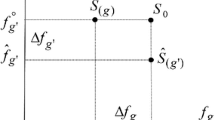Abstract
The traditional set of manufacturing scheduling problems concern general and easy-to-measure economic objectives such as makespan and tardiness. The variable nature of energy costs over the course of the day remains mostly ignored by most previous research. This variability should not be considered an added complexity, but rather an opportunity for businesses to minimise their energy bill. More effectively scheduling jobs across multiple machines may result in reduced costs despite fixed consumption levels. To this end, this paper proposes a scheduling approach capable of optimising this largely undefined and, consequently, currently unaddressed situation. The proposed multi-machine energy optimisation approach consists of constructive heuristics responsible for generating an initial solution and a late acceptance hill climbing algorithm responsible for improving this initial solution. The combined approach was applied to the scheduling instances of the ICON challenge on Forecasting and Scheduling [The challenge is organized as part of the EU FET-Open: Inductive Constraint Programming (ICON) project (O’Sullivan et al., ICON challenge on forecasting and scheduling. UCC, University College Cork, ICON, Cork. http://iconchallenge.insight-centre.org/challenge-energy, 2014)] whereupon it was proven superior to all other competing algorithms. This achievement highlights the potential of the proposed algorithm insofar as solving the multi-machine energy-aware optimisation problem (MEOP). The new benchmarks are available for further research.







Similar content being viewed by others
Notes
Instances and solution files are available at http://benchmark.gent.cs.kuleuven.be/msp/.
SENCOM—Smart ENergy COnsumption in Manufacturing.
References
Agrawal P, Rao S (2014) Energy-aware scheduling of distributed systems. IEEE Trans Autom Sci engineering 11(4):1163–1175
Blazewicz J, Lenstra JK, Kan AHGR (1983) Scheduling subject to resource constraints: classification and complexity. Discrete Appl Math 5:11–24
Borghetti A, D’Ambrosio C, Lodi A, Martello S (2008) An MILP approach for short-term hydro scheduling and unit commitment with head-dependent reservoir. Power Syst IEEE Trans 23(3):1115–1124
Bruzzone A, Anghinolfi D, Paolucci M, Tonelli F (2012) Energy-aware scheduling for improving manufacturing process sustainability: A mathematical model for flexible flow shops. CIRP Ann Manuf Technol 61:459–462
Burke EK, Bykov Y (2012) The late acceptance hill-climbing heuristic. Department of Computing Science and Mathematics University of Stirling—Technical Report CSM-192. ISSN:1460-9673
Dai M, Tang D, Giret A, Salido MA, Li W (2013) Energy-efficient scheduling for a flexible flow shop using an improved genetic-simulated annealing algorithm. Robot Comput Integr Manuf 29:418–429
Escamilla J, Salido MA, Giret A, Barber F (2014). A metaheuristic technique for energy-efficiency in job-shop scheduling. In: COPLAS 2014: 9th Workshop on Constraint Satisfaction Techniques for Planning and Scheduling Problems, p 42
Fang K, Uhan N, Zhao F, Sutherland JW (2011) A new shop scheduling approach in support of sustainable manufacturing. In: Glocalized solutions for sustainability in manufacturing. Springer, New York, pp 305–310
Feo TA, Resende MGC (1989) A probabilistic heuristic for a computationally difficult set covering problem. Oper Res Lett 8:67–71
Feo TA, Resende MGC (1995) Greedy randomized adaptive search procedures. J Global Optim 6:109–134
Fischetti M, Sartor G, Zanette A (2015) MIP-and-refine matheuristic for smart grid energy management. Int Trans Oper Res 22:49–59
Gerhard S, Johannes S, Hermann SW, Gunter D (2000) Record breaking optimization results using the ruin and recreate principle. J Comput Phys 159:139–171
Graham RL, Lawler EL, Lenstra JK, Kan AHGR (1979) Optimization and approximation in deterministic sequencing and scheduling. Discrete Math 5:287–326
Guzek M, Pecero JE, Dorronsoro B, Bouvry P (2014) Multi-objective evolutionary algorithms for energy-aware scheduling on distributed computing systems. Appl Soft Comput 24:432–446
Homberger J (2008) Multi project scheduling problems. http://www.mpsplib.com/glossary.php. Accessed 8 July 2016
Johnson DS, Demers A, Ullman JD, Garey MR, Graham RL (1974) Worst-cast performance bounds for simple one-dimensional packing algorithms. SIAM J Comput 3:299–325
Joslin DE, Clements DP (1999) Squeaky wheel optimization. J Artif Intell Res 10:353–373
Karnouskos S, Colombo AW, Lastra JLM, Popescu C (2009) Towards the energy efficient future factory. In: 7th IEEE International Conference on Industrial Informatics (INDIN 2009), IEEE, pp 367–371
Liu Y, Dong H, Lohse N, Petrovic S (2015) Reducing environmental impact of production during a rolling blackout policy-a multi-objective schedule optimisation approach. J Clean Prod 102:418–427
Liu Y, Dong H, Lohse N, Petrovic S, Gindy N (2014) An investigation into minimising total energy consumption and total weighted tardiness in job shops. J Clean Prod 65:87–96
Mouzon G, Yildirim MB (2008) A framework to minimise total energy consumption and total tardiness on a single machine. Int J Sustain Eng 1:105–116
Mouzon G, Yildirim MB, Twomey J (2007) Operational methods for minimization of energy consumption of manufacturing equipment. Int J Prod Res 45:4247–4271
O’Sullivan B, Hurley B, Simonis H, Mehta D, Cauwer MD (2014) ICON challenge on forecasting and scheduling. UCC, University College Cork, ICON, Cork. http://iconchallenge.insight-centre.org/challenge-energy. Accessed 8 July 2016
Pinedo M (2002) Scheduling: theory, algorithms, and systems. Power Syst IEEE Trans
Pritsker AAB, Watters LJ, Wolfe PM (1969) Multi project scheduling with limited resources: a zero-one programming approach. Manage Sci 3416:93–108
Salido MA, Escamilla J, Barber F, Giret A, Tang D, Dai M (2013) Energy-aware parameters in job-shop scheduling problems. GREEN-COPLAS 2013: IJCAI 2013 Workshop on Constraint Reasoning, Planning and Scheduling Problems for a Sustainable Future, pp 44–53
Shrouf F, Garcia-Sanchez JOMA, Ortega-Mier M (2014) Optimizing the production scheduling of a single machine to minimize total energy consumption costs. J Clean Prod 67:197–207
Talbi EG (2009) Metaheuristics: from design to implementation. Wiley, A John Wiley & sons, INC. Publication, New York
Weinert N, Chiotellis S, Seliger G (2011) Methodology for planning and operating energy-efficient production systems. CIRP Ann Manuf Technol 60:41–44
Acknowledgments
Work supported by iMinds, IWT and the Belgian Science Policy Office (BELSPO) in the Interuniversity Attraction Pole COMEX. Editorial consultation provided by Luke Connolly (KU Leuven).
Author information
Authors and Affiliations
Corresponding author
Rights and permissions
About this article
Cite this article
Van Den Dooren, D., Sys, T., Toffolo, T.A.M. et al. Multi-machine energy-aware scheduling. EURO J Comput Optim 5, 285–307 (2017). https://doi.org/10.1007/s13675-016-0072-0
Published:
Issue Date:
DOI: https://doi.org/10.1007/s13675-016-0072-0




